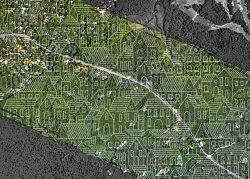Sewage. It’s not something people in East Hampton — a land of beautiful beaches and immaculate estates — like talking about. But it has to be dealt with, and town officials have come up with a creative real estate solution.
East Hampton plans to pitch a seven-acre land swap to Suffolk County, 27 East reported. The idea, unveiled on Monday night, is for the town to trade woodlands it owns for county-owned parklands west of a landfill in Montauk, where a wastewater treatment system could be installed.
The town spent two years exploring sites for a treatment plant for a new sewer system before settling on the parklands. Kim Shaw, director of East Hampton’s Natural Resources Department, noted the town’s acquisition of land often “does not allow any alternative uses.”
Read more



One council member, David Lys, noted a dearth of hiking trails on the land that would be repurposed for sewage treatment; that should limit opposition to a land swap. Still, some members of the Montauk Citizens Advisory Committee have expressed concerns, pointing to the precedent of losing the parkland to wastewater treatment.
The land swap would need a plethora of approvals, including from the County Legislature, both houses of the state legislature and the Suffolk County Parks Board of Trustees. Lys hopes to get a proposal in front of the legislative bodies in the next few months (the state legislative session ends in late June) and win approval before the end of the year.
According to 27 East, the town has been trying to create a wastewater management plan for downtown since 2016. Many properties are using septic systems, which dump wastewater into the ground, which can affect water quality.
Sewage is a major issue in the Hamptons. Other South Fork towns are trying to find land-oriented sewage treatment solutions as well. Earlier this year, Southampton Town reportedly began eyeing the purchase of approximately 40 acres of land, in part to locate an outflow pipe connected to a nearby sewage treatment plant.
It also matters for real estate: Properties are worth more when they are served by sewer systems and local water quality is high.
[27 East] — Holden Walter-Warner
